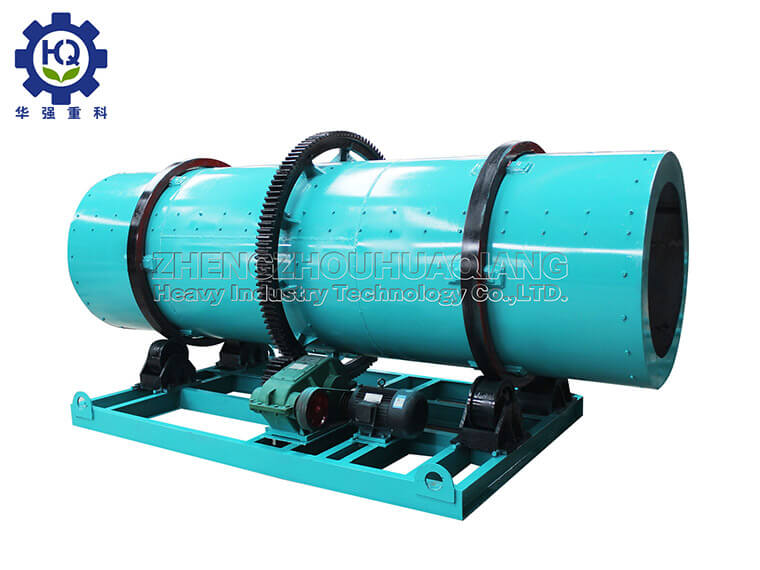The principle of drum granulation is that materials rely on surface tension, an appropriate amount of liquid phase, extrusion force generated by rolling between materials, and small particles are the core of materials in the correct direction of movement in the granulator, and large absorption and small attachment are made during rolling. The higher the rolling frequency within a certain period of time, the higher the balling rate will be, and the rounder the particles will be after molding.
In the production process, we have encountered two situations due to different friction between materials and the wall of the granulator. The internal surface finish of the granulator is large, which reduces the friction between the material and the cylinder wall and weakens the upward movement of the material. If the material does not roll, it will not produce particles. In view of this situation, we can solve it by adjusting the rotating speed of the granulator and installing a small board inside.
The materials in the organic fertilizer granulator are seriously sticky to the wall, and the friction between the materials in the granulator and the cylinder wall is increased, which lifts the materials too high, causing the materials to be thrown down from the top, and causing the particles to be out of round and large particles to be too many. We believe that there are two reasons for this situation: on the one hand, there are too many sticky materials in the materials, which we solve by changing the process formula and reducing the amount of sticky materials; On the other hand, the internal surface of the organic fertilizer granulator is not smooth, which can be solved by changing the internal materials and increasing the internal finish of the granulator.